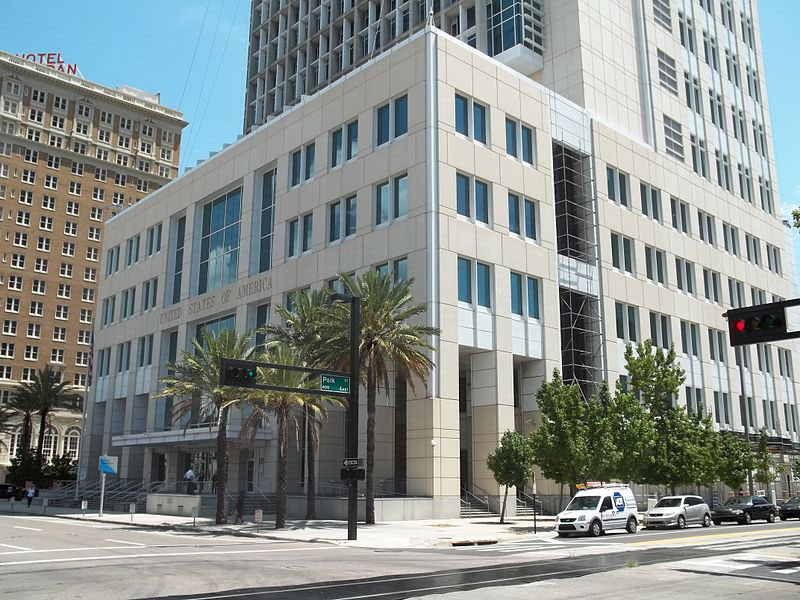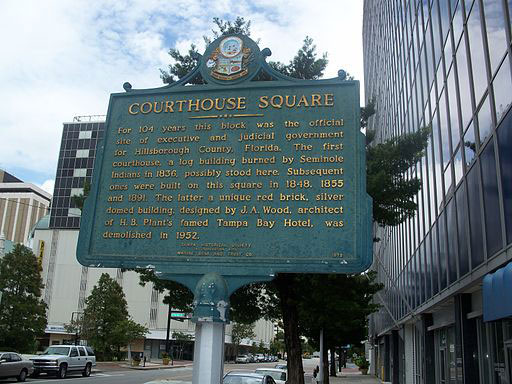The Role of the Prosecutor and Grand Jury in Filing Florida Criminal Cases:
When you or someone you know is charged with a crime or a combination of Florida criminal offenses, a feeling of uncertainty is commonly experienced. It can be a very stressful situation to be in. We’ve created this page to explain the role of the prosecutor and grand jury in filing Florida criminal cases against those who are charged with a crime by police in Florida.
The Tampa Criminal Defense Attorneys here at Fernandez Law Group are here to help ease some of the stress of not knowing how the process will unfold, and guide you through a fair trial towards the most desirable possible outcome while also keeping you completely informed on the process of defending criminal charges and what to expect here in Florida.
The Process of Filing a Criminal Case:
The process begins when a victim, or one having knowledge of a crime, files a sworn statement with the proper authority known as a complaint. Once a complaint has been investigated, and the complaint is found to have probable cause, a crime can be charged either by information or indictment.

The Arrest and Subsequent Police Report:
Before anyone is actually charged with a crime here in Florida, an arrest must be made. During that process, the police will create an arrest report, which is then forwarded to the local county prosecutor.
The police report is intended to be a summary of the events which led to the arrest of the individual along with specific details of the arrest, including the date and time, as well as the location, any witnesses, and evidence collected.
Based upon the initial review of the police report, the prosecutor will have a few options to consider. They may file a complaint with the trial court, which in turn sets forth the charges. Or they can present the evidence to a grand jury and ask for guidance as to what criminal charges, if any, should be brought upon the defendant. And finally, they can decide not to pursue either of the previously aforementioned options.
Within 24 hours of his or her arrest, the accused criminal, known as the “defendant” is brought before the judge for first appearance. At this hearing the judge informs the defendant of the charges against him/her, advises the defendant of his/her right to counsel, and explains the amount of bond.
Determining Prosecutorial Jurisdiction:
If the arrest occurred in Tampa, it would be handled by Hillsborough County and courthouse. An arrest in Clearwater would be under jurisdiction of Pinellas county and courthouse. An arrest which includes Federal charges would be under Federal jurisdiction and handled by a Federal Prosecutor for the appropriate district, and in Tampa, that would be the United States District Court for the Middle District of Florida.
The Office of Statewide Prosecution in Florida
The Office is charged with the responsibility to prosecute certain organized criminal activities which occur in, or affect, two or more judicial circuits-for example: bribery; burglary; criminal usury; extortion; gambling; kidnapping; larceny; murder; prostitution; perjury; robbery; carjacking; home-invasion robbery; narcotics violations; violations of the provisions of the Florida RICO (Racketeering Influenced and Corrupt Organization), Florida Anti-Fencing Act, or the Florida Anti-Trust Act of 1980 as amended; computer pornography; and any crime involving, or resulting in, fraud or deceit upon any person; or any attempt, solicitation, or conspiracy to commit any of the crimes specifically enumerated above.
Discretion in Filing Criminal Charges:
There is plenty of room and discretion at the disposal of a prosecutor regarding whether or not they should file charges, and not only that, but also how many possible crimes they decide a person could be charged with. It is typical for prosecutors to include more charges as opposed to a bare minimum, as negotiations between the defendant’s attorney and the prosecution often will result in charges being dropped along the way for various reasons.
One important thing that needs to be considered in these situations is timing. If a prosecutor is going to file charges, whether in Florida or the rest of the United States, you can expect them to file those charges within 3 days. Some jurisdictions get it done in as few as 2 days. Over time, the crime or criminal charges you are faced with may change significantly as the case unfolds.
Our Tampa Lawyers are ready to provide you with a detailed consultation for FREE!
Factors that may determine whether or not to prosecute:
As we mentioned earlier, prosecutors have plenty of discretion when it comes to deciding whether or not to charge a defendant in a criminal case and which offenses they plan on pursuing. There are a few factors that may be considered more important than others in making that decision. These include:
Political Aspirations: Because prosecutors typically use their position as a stepping stone into higher office or in seeking political appointments, it is no surprise that most prosecutors are very aware of the type of message or image they’re sending to the community when filing a criminal cases regarding particular offenses against someone. Community outrage may prompt a prosecutor to pursue a case even if there is questionable evidence. And of course, there are certain crimes that will almost always be prosecuted in order to avoid sending a bad message to other would-be criminals.
Office Policy: Some counties have policies in place regarding which crimes they automatically prosecute, and certain crimes or policies may be given higher priority over other crimes and offenses that occur, of which that particular county or office may not consider to be as important.
Prosecutor’s Notion of Justice: Just like everyone else, prosecutors are people and they have beliefs and ideas as to what constitutes moral or immoral, right and wrong, or good and evil. In some cases, this could lead a prosecutor to pursue a case more aggressively than may be warranted based upon the facts at hand. But in other situations, a prosecutor may decide to file lesser charges or even choose not to pursue a case whenever they feel justice will be served – even if the defendant ends up not being charged at all for any crime.
What is the role of the Grand Jury?
A grand jury is very similar to a regular jury, although a grand jury’s job is really only to decide whether or not to charge an individual, rather than deciding the guilt or innocence of that person through trial.
The evidence is presented to the Grand Jury by the prosecutor, and in turn, the Grand Jury will return a verdict to the prosecutor on whether or not they feel charges are warranted and should be brought upon the defendant, as well as what those particular charges should consist of.
In Florida, a grand jury consists of 18 citizens who hear allegations and evidence brought before them by the prosecuting authority and decide who, if anyone, should be charged with what crime(s).
If a defendant is held on a complaint and an information or indictment is not filed within 21 days, he/she may demand an adversary preliminary hearing. At an adversary preliminary hearing, evidence is presented and witnesses are questioned. The judge then makes a determination whether there is probable cause to believe that a crime has been committed and that the defendant committed it, in order to further detain the defendant.
Differences between a Grand Jury and a Jury:
- Grand Juries view evidence only to determine whether or not to file charges.
- A Regular Jury decides the guilt of a defendant.
- Grand Juries in Florida typically consist of 18 members.
- A regular Jury in Florida typically consists of 6-12 members.
- Grand Juries does not require unanimous decisions, only a simple majority.
- A regular Jury requires a unanimous decision.
- Grand Juries meets secretly.
- A regular Jury serves in a public trial.
How does a Grand Jury Work?
In a court hearing, the jury is present to hear the case and evidence and later decide guilt or innocence of the defendant. But a Grand Jury works much differently, behind closed doors, out of the public eye. Not only are potential defendants prohibited from being present during these proceedings, their attorneys are also barred from attending as well.
The Grand Jury will review the evidence and list of charges presented to them by the prosecutor, along with any witnesses or evidence related to the crime in an effort to receive an indictment. Although these proceedings are secret, transcripts made from the proceeding are available and may be obtained after the fact through special motions.
Because a Grand Jury can give the prosecution a very good idea of how a Regular Jury might receive and process the evidence in the case, prosecutors find them to be a very resourceful component in any criminal case. If the case and evidence presented is received well by the Grand Jury, there is a greater chance the prosecution will be able to achieve the desired results at trial.
The Grand Jury can either indict or not indict. If they decide to indict a defendant, they return what is known in the legal world as a “true bill”. However, in cases where the Grand Jury decides not to indict, the prosecutor is afforded additional time and opportunity to gather and present additional or new evidence and witnesses and submit an amended version. The prosecutor can also elect to present the case to an alternate Grand Jury, and even if the Grand Jury still decides not to indict, a prosecutor has the power to file criminal charges regardless of whether or not the Grand Jury chooses to indict.
The Grand Jury’s affect on Preliminary Hearings:
In felony cases where a prosecutor decides to bypass a Grand Jury and file charges on their own, then a preliminary hearing must be held. The purpose of a preliminary hearing is for the prosecutor to demonstrate to the judge whether or not the state has sufficient evidence to warrant a trial. The problem this leaves for a prosecutor, however, hinges on the evidence, which must be revealed during the preliminary hearing. Some prosecutors would prefer to wait to reveal that evidence until the actual trial – and for that reason, prosecutors tend to prefer making use of a grand jury.
If you are facing criminal charges or charged with a crime in Florida, our Tampa Criminal Defense Attorneys are here to help. We invite you to contact us today and find out what we can do to help you through any pending criminal litigation or charges you or a loved one may be up against.


